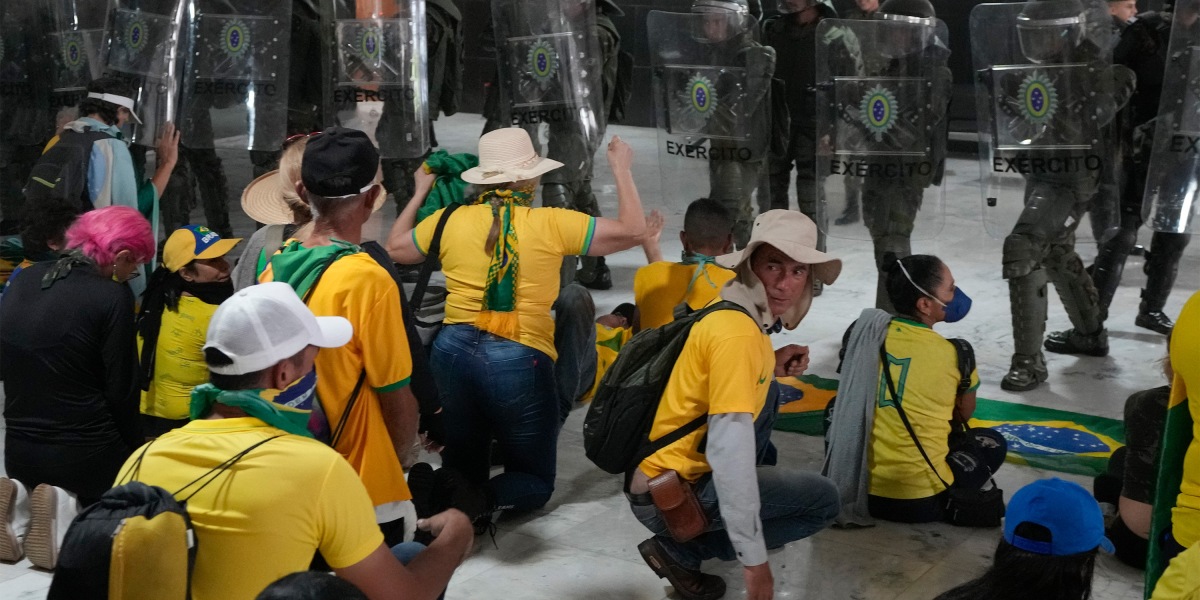
In just 24 hours, it reached 1.1 million followers.
“I’m not surprised at all that this account came about so quickly,” says David Nemer, a professor of media studies at the University of Virginia and faculty associate at Harvard University. “We all knew [the insurrectionists] have been organizing in WhatsApp groups and Telegram channels, because they’re all open. It was all announced on social media. It was expected. There was no secrecy.”
The groups that mounted the attack are supporters of the right-wing former president Jair Bolsonaro. Despite a lack of evidence that fraud took place, they do not accept the legitimacy of the recent election result, which returned the leftist Luis Inácio Lula da Silva to power. They camped out in front of military barracks across the country in protest before being bused to the capital for the insurrection.
As they rampaged around the lawns of Brazil’s federal government and inside its congress, supreme court, and presidential palace, the rioters left a vast trail of posts, videos, and photos in their wake. They shared their actions on both public social media platforms and private messaging apps. Dozens of these images have been collected and posted by Contragolpe Brasil. In every photo, people’s faces are visible. Their clothes are almost always yellow and green, the colors of Brazil’s flag, which Bolsonaro supporters say represent their love for their country and their attempt to take it back from the left.
Eventually, those running Contragolpe Brasil, who remain anonymous (interview requests for this story went unanswered), put out a call for people to start sending private messages with photos and identifying details. They also asked people to send the information to authorities.
The Instagram account isn’t the only crowdsourced effort underway in Brazil to identify rioters. Agência Lupa, a fact-checking agency, has created a reader-generated database of text, photo, and video posts from the day of the insurrection, with all information sent anonymously and privately.
This method of identifying participants in mass criminal events by scouring social media for clues isn’t new. American citizens did the same to help identify those responsible for the insurrection on January 6, 2021. Some even formed groups, like The Deep State Dogs, to identify those who vandalized the Capitol or who assaulted law enforcement officers and the press. Members of these groups were diverse but had one common goal: accountability.
In Brazil, a similar dynamic has emerged.
